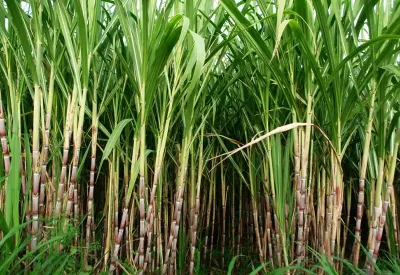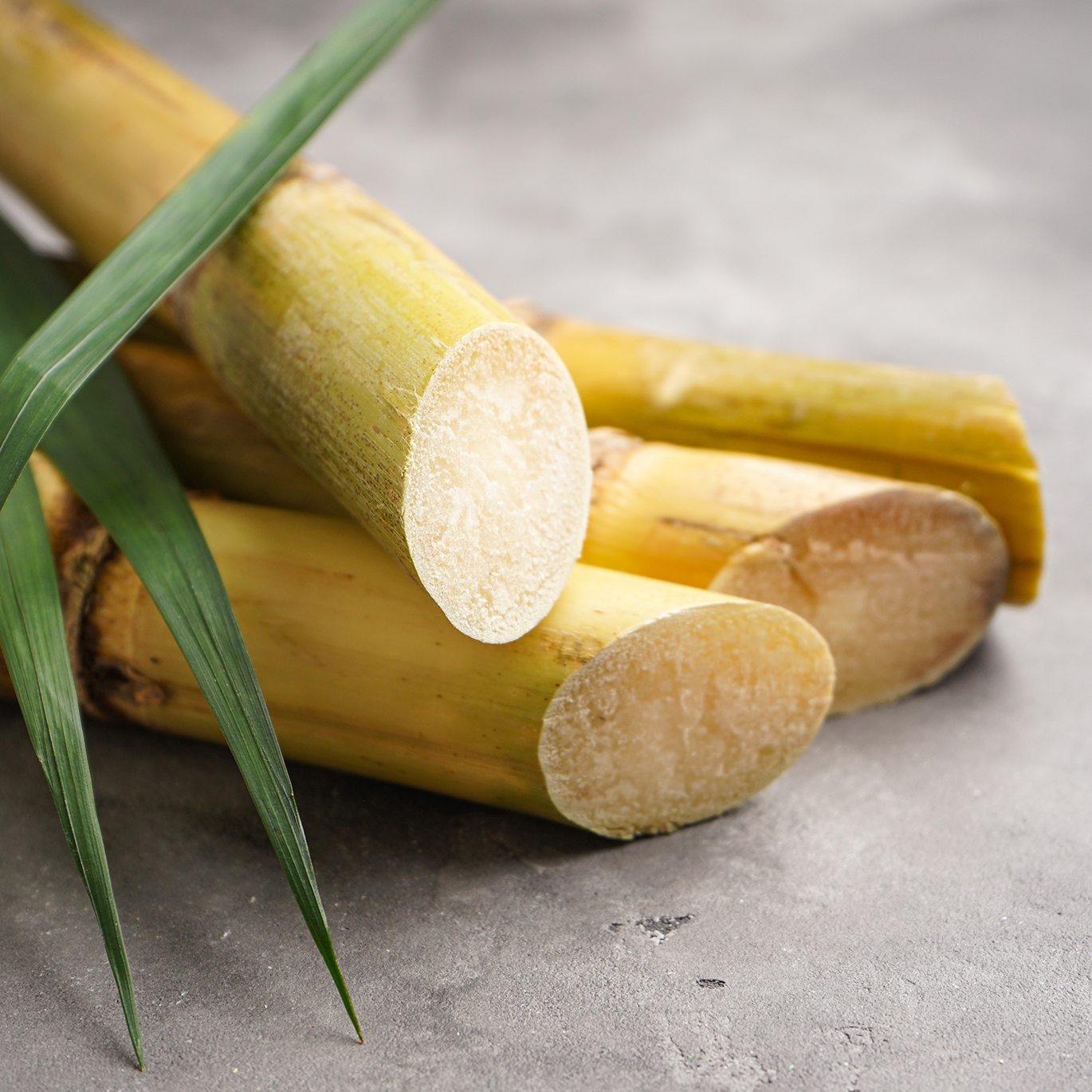Why businesses invest in Sugar beet vs sugar cane
Wiki Article
The Great Debate: Sugar Beet Vs Sugar Cane - Which Is the Superior Option for Sugar?
The debate over sugar beet versus sugar cane as the recommended sweetener includes numerous critical aspects. Each deals unique benefits and difficulties relating to manufacturing, taste, and health and wellness effects. While sugar beet might attract those focusing on sustainability, sugar cane has its own cultural and cooking significance. As customers end up being extra conscious of their selections, the question stays: which sugar really sticks out in today's market?The Beginnings of Sugar Beet and Sugar Cane
Although sugar cane has been cultivated for thousands of years, largely in tropical areas, sugar beet arised as a considerable choice in cooler climates during the 18th century. Sugar cane, indigenous to Southeast Asia, was first trained around 8000 BCE and spread out globally via trade and exploration. Its high sucrose web content made it a useful crop, leading to comprehensive haciendas in areas like the Caribbean and Brazil.On the other hand, sugar beet was first cultivated in the Mediterranean around the 18th century, specifically acquiring grip in Europe as a reaction to sugar cane lacks. The plant flourishes in warm climates, making it suitable for areas with cooler climate. The discovery that sugar can be extracted from beet origins revolutionized sugar manufacturing, particularly throughout the Napoleonic Battles when profession limitations minimal cane sugar access. The rise of sugar beet cultivation noted a turning point in the background of sugar, supplying a regional source for many nations.
Manufacturing Processes: From Field to Sweetener
The manufacturing procedures of sugar beet and sugar cane reveal significant differences in cultivation techniques, harvesting approaches, and improvement stages. Understanding these subtleties is essential for valuing just how each plant adds to the total sugar market. This contrast highlights the unique qualities and difficulties connected with both sources of sweet taste.
Cultivation Strategies Comparison
Growing methods for sugar beet and sugar cane expose unique methods that influence their manufacturing processes, from field prep work to last sugar removal. Sugar beet cultivation normally includes plowing and harrowing to develop a fine seedbed, adhered to by seeding in rows to facilitate growth. This crop take advantage of cooler climates and is commonly planted in springtime. In comparison, sugar cane is normally planted in furrows with pre-sprouted cane pieces, calling for a warm, exotic environment for suitable development. Cane areas are usually outlined to manage water efficiently, provided its demand for considerable irrigation. Both plants are managed with details fertilization and bug control methods tailored to their development environments, influencing yield high quality and performance in sweetener removal.
Gathering Techniques Discussed
Effective harvesting methods for sugar beet and sugar cane play a vital duty in ensuring optimal return and high quality of the final item. Sugar beet harvesting usually uses mechanical origin farmers, which successfully root out the beets from the dirt and separate them from the foliage. This method reduces damage to the beetroots and decreases labor prices. On the other hand, sugar cane harvesting might make use of either hand-operated labor or machinery, relying on the area and range of manufacturing. Mechanical farmers reduced the cane at the base and typically strip away the fallen leaves, maximizing the process for bigger fields. Both approaches call for cautious timing to assure the crops are harvested at peak sweetness, affecting the top quality of the final sugar product.Refinement Process Distinctions
While both sugar beet and sugar cane go through extensive improvement procedures to change their raw types into usable sweeteners, the methods used differ substantially. Sugar beet improvement begins with cleaning and slicing the beets into thin cossettes, followed by diffusion, where warm water removes sucrose. The resulting juice is then purified, concentrated, and crystallized. In contrast, sugar cane processing entails squashing the stalks to remove juice, which is after that made clear using lime and warmth to get rid of impurities. The cane juice is evaporated to create syrup before condensation. Inevitably, while both processes aim to generate white sugar, the unique methods highlight the unique features of each resource and their ramifications for taste and purity in the end product.Nutritional Profiles: What remains in Your Sweetener?
The dietary accounts of sugar beet and sugar cane existing distinctive differences worth analyzing. This comparison consists of elements such as calorie material, mineral and vitamin presence, and variants in glycemic index. Recognizing these elements can offer understandings right into how each sugar might influence overall wellness.Caloric Content Comparison
Understanding the caloric content of sugar beet and sugar cane is important for those conscious of their nutritional options. Both sweeteners mainly include sucrose, adding a similar caloric worth. Usually, sugar beet consists of roughly 387 calories per 100 grams, while sugar cane has concerning 390 calories per the same quantity. The slight difference in caloric material might not substantially impact most diet plans; however, it is amazing for those carefully checking their caloric intake. Additionally, both sugar sources supply energy yet do not have essential nutrients, making them mostly resources of empty calories. Individuals seeking much healthier alternatives might want to take right into account these elements when picking between sugar beet and sugar cane as their favored sweetener.Mineral and Vitamin Material
Caloric content gives just a component of the picture when evaluating sugar beet and sugar cane. Both resources of sugar differ substantially in their mineral and vitamin profiles. Sugar beets are remarkably rich in crucial nutrients, including potassium, magnesium, and iron. They additionally have little amounts of vitamins such as B6 and folate, adding to their dietary value. On the other hand, sugar cane provides a various collection of benefits, including calcium, phosphorus, and traces of B vitamins. While neither option is a considerable source of vitamins and minerals contrasted to whole foods, sugar beets Source might have a minor edge because of their greater mineral content. Eventually, customers seeking dietary benefits from sugar should consider these differences in profiles.Glycemic Index Distinctions
Glycemic index plays an important function in evaluating just how different sugar impact blood sugar levels. Sugar beet and sugar cane display noteworthy differences in their glycemic feedbacks. Generally, sugar beet has a reduced glycemic index contrasted to sugar cane, resulting in a slower and steadier surge in blood glucose degrees after intake. This characteristic might make sugar beet a preferable alternative for individuals handling diabetes or those seeking to preserve secure energy degrees. On the other hand, sugar cane tends to trigger a much more quick spike in blood sugar, which might lead to quicker energy accidents. Recognizing these differences is significant for consumers intending to make educated dietary choices regarding sugar and their effect on general wellness.Ecological Influence: Sustainability Considerations
While both sugar beet and sugar cane are crucial resources of sugar, their environmental influences and sustainability considerations differ substantially. Sugar beetroots, mainly expanded in temperate regions, usually need less water and can be cultivated in varied environments. They likewise take advantage of plant turning techniques, which boost dirt wellness and reduce the requirement for synthetic fertilizers. Extensive farming of sugar beets can lead go to website to soil depletion and pesticide usage.On the other hand, sugar cane thrives in exotic environments and typically requires substantial water sources for irrigation (Sugar beet vs sugar cane). The monoculture nature of sugar cane farming can exacerbate dirt erosion and biodiversity loss. Additionally, the burning of cane fields prior to harvest launches carbon exhausts and adds to air contamination. Both crops encounter challenges pertaining to climate adjustment, yet their differing cultivation techniques exceptionally affect their general sustainability profiles. The choice in between sugar beet and sugar cane includes evaluating these environmental effects meticulously.
Preference and Culinary Utilizes: Which Sugar Reigns Supreme?
The selection between sugar beet and sugar cane extends past environmental factors to consider to encompass preference and cooking applications. Sugar beet, commonly viewed as having a slightly various flavor profile, has a tendency to be much less sweet than sugar cane. This refined distinction can influence its use in recipes, especially in baked products where a neutral sweet taste is desired.Conversely, sugar cane is commemorated for its distinctive, abundant, and much more complex taste, making it a preferred selection for beverages and desserts - Sugar beet vs sugar cane. Its all-natural molasses web content can improve the depth of tastes in various meals
In food preparation, sugar cane's flexibility beams through in sauces, glazes, and confections, while sugar beet is generally located in refined foods and sweeteners like granulated sugar. Inevitably, the choice between the 2 sugar often rests on navigate to this site private preference preferences and specific cooking applications, with each offering one-of-a-kind benefits in the kitchen area.
Wellness Effects: Sugar Beet Vs Sugar Cane
Both sugar beet and sugar cane have unique wellness effects that can affect customer selections. Sugar beet vs sugar cane. Sugar beet is commonly regarded for its higher fiber web content, which can help gastrointestinal health. In addition, it has particular anti-oxidants that might add to general wellness. On the various other hand, sugar cane is abundant in nutrients such as calcium, potassium, and magnesium, using some mineral advantagesNonetheless, both resources mostly include sucrose, which can lead to comparable wellness issues when consumed exceedingly, such as weight problems, diabetic issues, and heart problem. The handling techniques also differ; sugar beet is generally improved a lot more intensively, potentially resulting in a loss of particular nutrients. Customers concerned regarding ingredients may choose sugar cane, as it typically goes through much less processing. Eventually, understanding these health and wellness ramifications can guide people toward making educated decisions concerning their sweetener choices.
Customer Preferences: Patterns and Insights
Customer preferences for sugar have actually progressed considerably in recent years, influenced by wellness trends, ecological concerns, and nutritional choices. Raised recognition of the unfavorable health and wellness results related to excessive sugar consumption has led many customers to seek choices. This change has triggered an expanding interest in natural sweeteners, with sugar beet and sugar cane going to the forefront of conversations.Research suggests that consumers are significantly favoring sugar beet because of its viewed environmental benefits, as it is frequently grown closer to processing plants, minimizing transport emissions. On the other hand, sugar cane is commonly connected with tropical regions and might lug perceptions of sustainability obstacles.

Frequently Asked Inquiries
Just How Do Sugar Beet and Sugar Cane Affect Blood Glucose Levels?
Sugar beet and sugar cane both include sucrose, which can boost blood sugar levels. The impact mostly depends upon private metabolic rate and intake amounts, but both resources add likewise to blood glucose responses most of the times.Which Sweetener Is Much Better for Baking and Food preparation?
When reviewing sugar for cooking and cooking, one should take into consideration appearance, taste, and wetness retention. Sugar beet and sugar cane both use special high qualities, with sugar cane commonly chosen for its richer flavor account in cooking applications.Can Sugar Beet or Cane Be Made Use Of in Vegan Diets?
Both sugar beet and sugar cane can be made use of in vegan diet plans. They are plant-derived sugar, making them appropriate for people seeking vegan-friendly alternatives without pet products, making sure ethical options in their culinary practices.What Are the Historic Usages of Sugar Beet and Cane?
Historically, sugar beet and cane functioned as vital sources of sweetness, with cane grown in tropical regions and beet in pleasant areas. Both have been indispensable to different societies, economies, and culinary traditions throughout background.Are There Any Kind Of Alternatives to Sugar Beet and Cane?
Alternatives to sugar beet and cane consist of agave nectar, honey, maple syrup, and fabricated sweeteners like aspartame and sucralose. These replacements provide differing flavors and health advantages, interesting diverse nutritional preferences and limitations.Report this wiki page